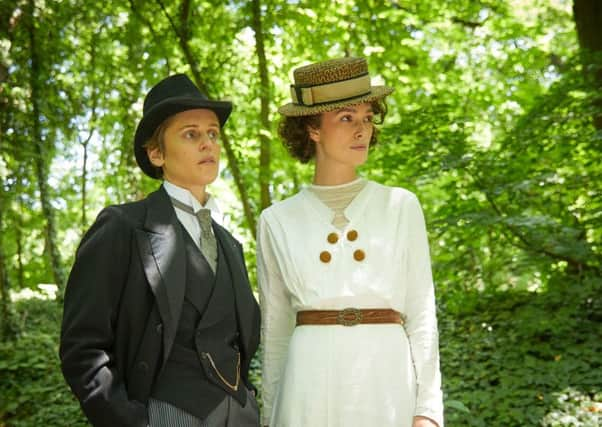Yvette Huddleston: Why women’s stories are just as important as men’s


Directed by Leeds-born Wash Westmoreland, it is a literary biopic of great sensitivity which deserves its many plaudits, and Keira Knightley gives one of the best performances of her career in the lead role. Colette was born in the late 19th century, died in the mid-20th century and was a woman ahead of her time.
The movie focusses on her early life when in her twenties she married publisher Henry Gauthier-Villars (played in the film with intelligent nuance and great charm by Dominic West) known by the pen name ‘Willy’. He encouraged her to write but then took sole credit for her hugely successful Claudine novels – he also famously locked her in their apartment to ensure she attained her daily word count.
Advertisement
Hide AdAdvertisement
Hide AdMore years ago than I care to remember, I studied one of Colette’s novels Le Blé en herbe as an A-level student and became fascinated by her extraordinary life – she was also a mime artist, an actor, and a journalist – and extensive body of work. Going on to study French and Italian at university, I fully expected to find her represented on my degree course. Not so. The literary line-up was almost exclusively male – with a couple of notable exceptions: Madame de la Fayette, author of one of the first ever novels in literature, and Simone de Beauvoir who was, frustratingly, more often than not discussed in relation to her long-standing partner Jean-Paul Sartre. Hmmm. It was an early lesson for me that women’s stories – and lives and work – are often deemed to be of secondary importance. The lobbying group VIDA: Women in Literary Arts reported in 2016 that the work of women writers gets far less critical attention in literary publications than that of their male counterparts – only 26 percent of reviews that year in the London Review of Books and 29 percent in the Times Literary Supplement were about titles by women.
It is pleasing to note that an attempt to address this type of inequality is being made right here in Yorkshire. In 2018 the wonderful Sheffield-based independent publisher And Other Stories published only women writers and last month another outstanding local independent publisher – Hebden Bridge-based Bluemoose Books – announced that in 2020 they will be publishing an all-women list.
Last month Glenn Close in her Golden Globes acceptance speech for her role in The Wife – which incidentally also dealt with the theme of a man taking credit for a woman’s literary output – made the point, only half-jokingly, that the film took over 14 years to get made because of its title. Wouldn’t it be great if, well into the 21st century now, we could get beyond that kind of thinking?